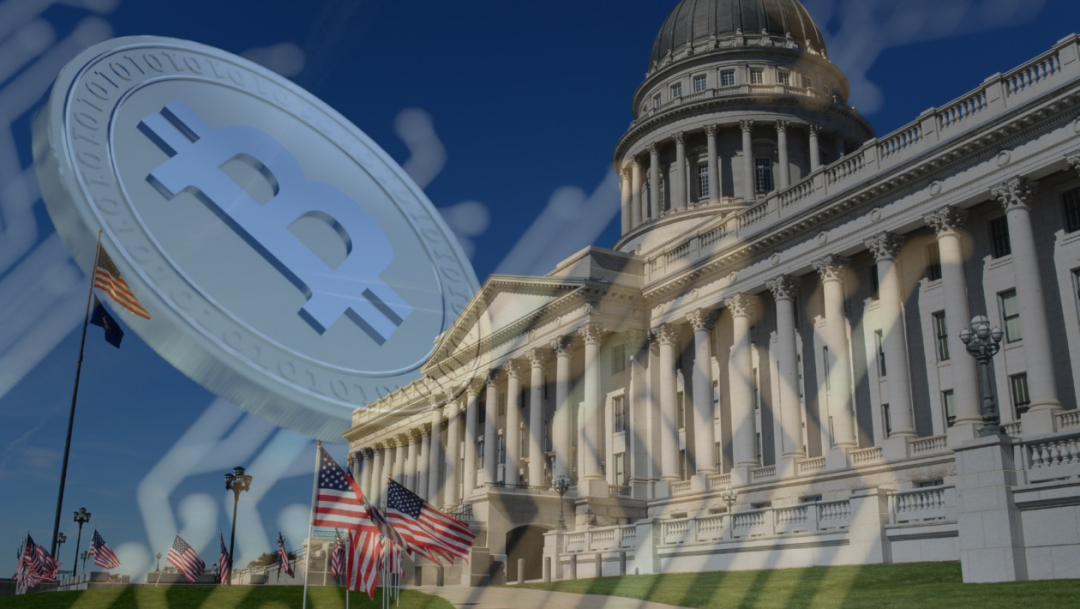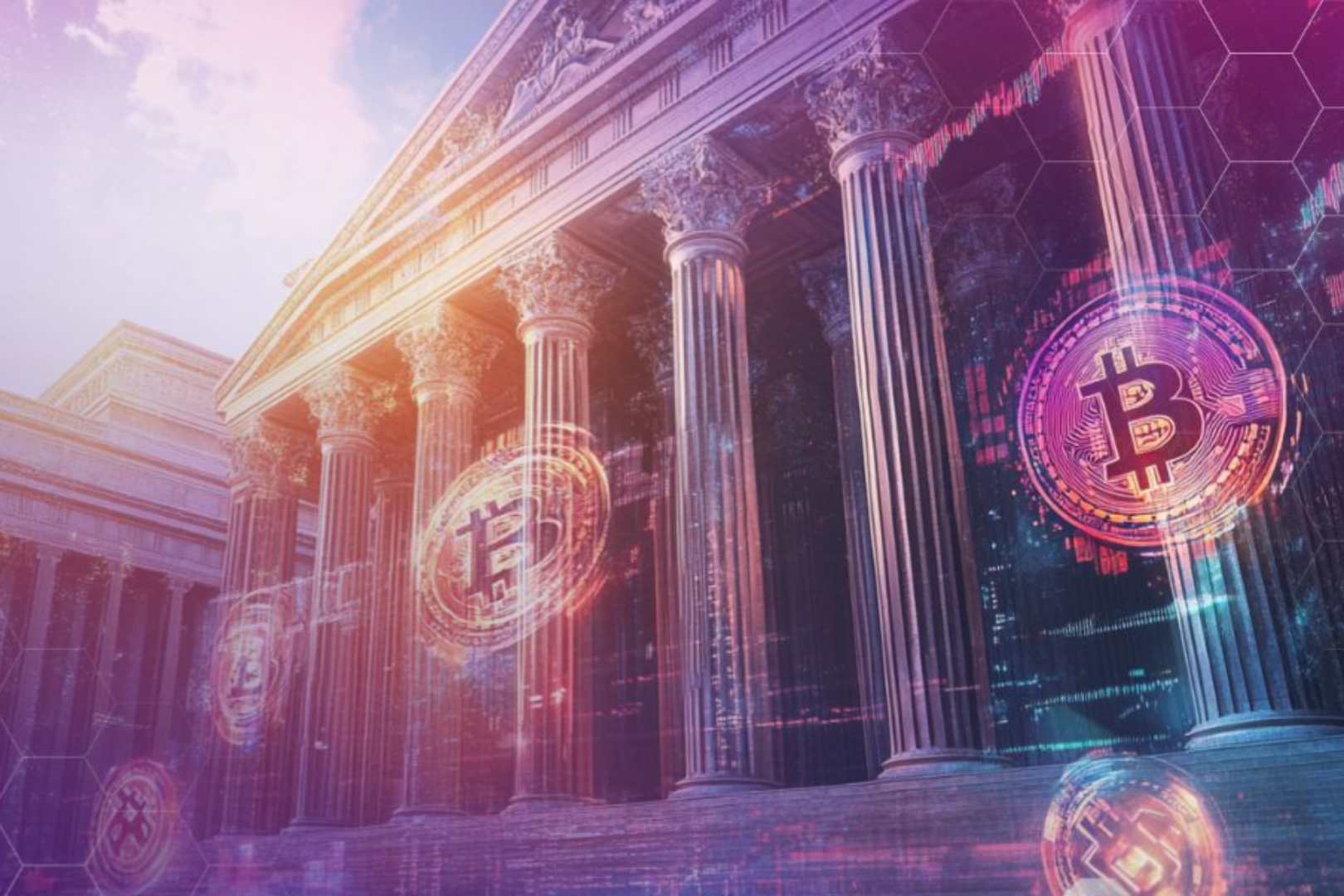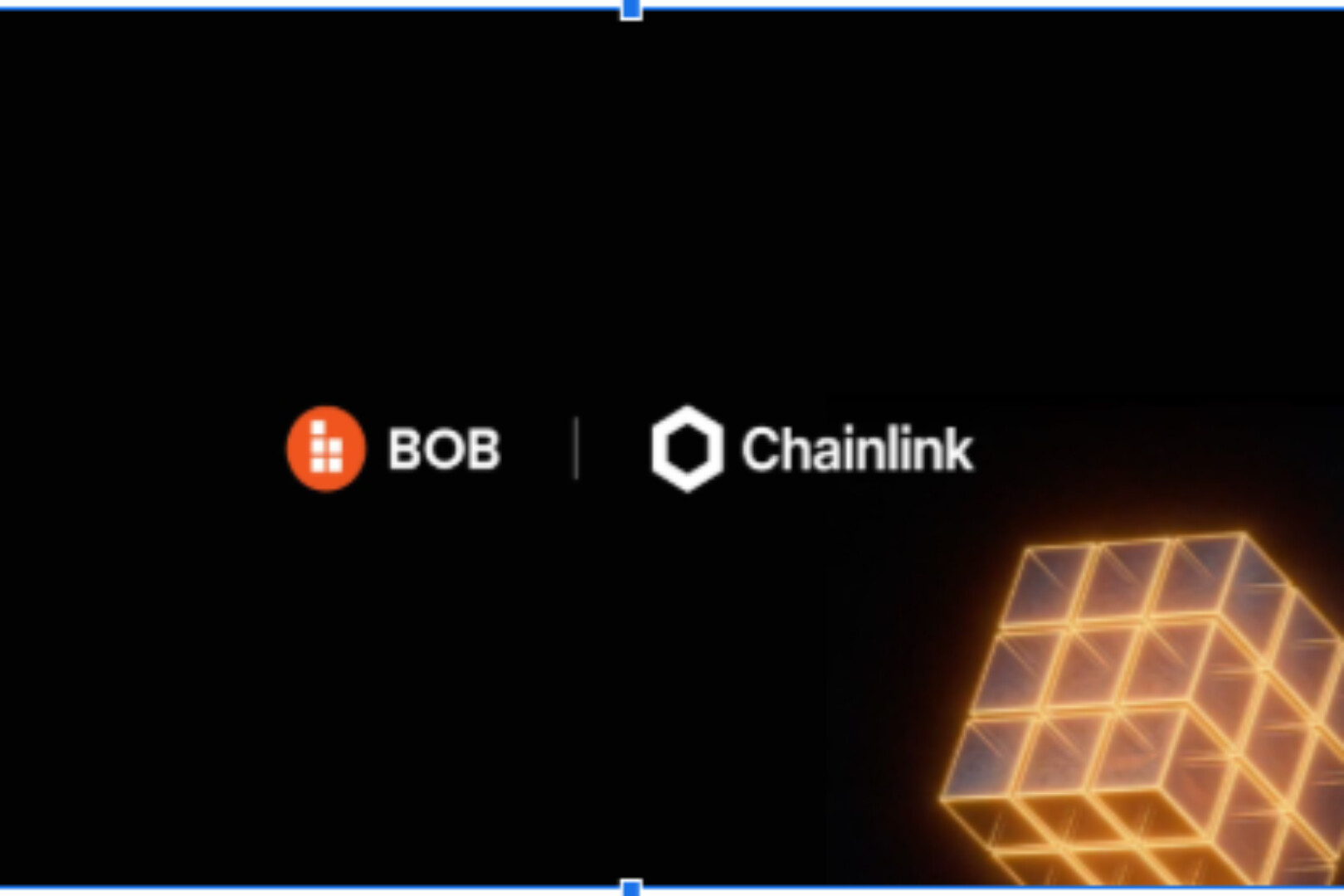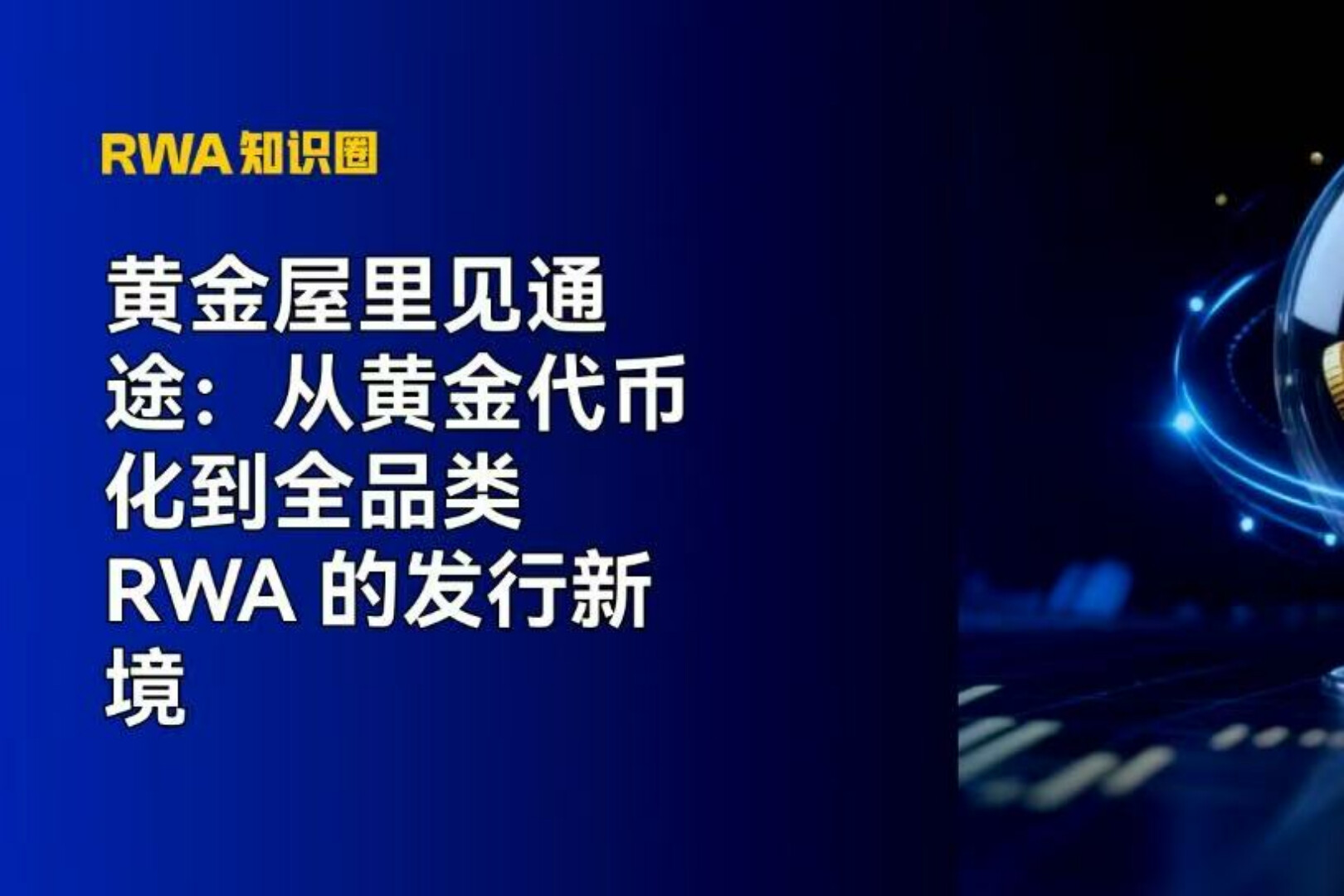
On August 9, 2022, a ban pierced the tranquility of the encryption market, and a regulatory storm fanned by a butterfly made the encryption world jittery.
The U.S. Department of the Treasury’s Office of Foreign Assets Control (OFAC) announced sanctions on the currency mixer Tornado Cash, and the developer of Tornado Cash was subsequently arrested in the Netherlands.
USDC issuer Circle has officially blacklisted Ethereum addresses from the U.S. Treasury Department’s sanctions list.
Uniswap blocked 253 crypto addresses related to stolen funds or sanctions; lending protocol Aave similarly blocked numerous addresses that interacted with Tornado Cash…
CeFi/DeFi applications are gradually accepting "supervision", what about the public chain at the protocol layer? If one day OFAC wants to review or sanction Ethereum after it has been converted to PoS (Proof of Stake), is it possible?
Faced with this problem, Vitalik Buterin, the founder of Ethereum, responded via Twitter that if the supervisory authority conducts a protocol-level review of Ethereum through node service providers of certain protocols (such as Lido, Coinbase), he will regard this review as Attacks on Ethereum, if there is such a situation, will choose to destroy these nodes through a broader consensus (social consensus).
For CeFi/DeFi projects,One side is the ideal of decentralization; the other side is more compliance, large-scale out-groups to get more users, how to choose? How will regulation affect the future development of the crypto world?
Guests:
Guests:
High-quality blue-collar, general counsel of Fenbushi Capital, senior legal expert and researcher in the blockchain industry.
first level title
After the merger of Ethereum, will the transformation of the POS consensus mechanism bring greater regulatory risks?
Blue collar: There will be no greater regulatory risk, because the merger and POS transformation are matters at the infrastructure level and do not directly involve financial services.
However, for the consensus mechanism to become POS, for regulators, the specific regulatory measures may be adjusted. Specifically, in theory, regulators can impose certain scrutiny on each verification node of the Ethereum network, whether it is POW or POS-the review in the POW era can start from the mining pool (but it will not be implemented in time in the future), and The POS era will start with node hosting service providers.
Considering that most of the node hosting service providers are in the United States, it will be more convenient for the US regulators to implement some kind of review measures.
Lily King:At present, ETH, like BTC, is recognized as a "commodity" rather than a "securities" in the United States. The transition to POS may bring about a new round of discussions on whether ETH is a security.
Adam Levitin, a professor of law at Georgetown University, recently tweeted that the staking/staking profit model is similar to investment profit, which meets the "Howey" standard for securities defined in the United States - "to profit completely from the labor of others", so POS Token There is a risk of being considered a security.
first level title
How will regulation affect DeFi applications?
blue collar:Any DeFi project must first distinguish two different things: (1) the smart contract itself; (2) the project company operated by the relevant developers (usually the project company will provide some centralized services based on DeFi).
For example, Uniswap’s smart contracts on Ethereum and the company Uniswap Labs, although the two may be regarded as the same DeFi project by the outside world, are two independent things at the legal level, and the regulatory issues they face are different. .
The smart contract part of DeFi (only referring to those deployed on the public blockchain) is not currently considered as a directly regulated object, because the current laws of various countries do not regard smart contracts as a subject that can take responsibility for themselves (although future legislation may change).
Therefore, regulators can only adopt a roundabout strategy for smart contracts, that is, prohibiting or restricting relevant individuals/institutions from using such smart contracts, in this way, indirectly marginalizing or even eliminating smart contracts from the mainstream market. However, considering that the jurisdiction of regulatory agencies in various countries has geographical limitations, generally speaking, the United States has the strongest regulatory capacity in this regard, because the jurisdiction of the US regulatory agencies can cover the most and widest range of individuals/institutions, and accordingly allows a Smart contracts are the most affected. In contrast, regulatory measures in small countries may have little practical impact on smart contracts, even if they are nominally prohibited from using the smart contract.
As for the operating company of the DeFi project (usually a company established by the developer itself), since it provides various centralized Internet services/financial services, it will be routinely supervised in accordance with existing laws and regulations.Please note that the provision of centralized services and "decentralized finance" itself are not contradictory, but can coexist in a DeFi project (objectively, they often coexist).
For example, most DeFi operating companies provide web front-end services, which are typical Internet information services, so conventional regulations will naturally apply (for example, Uniswap Labs must hide the trading interface of illegal securities tokens from the web front-end , even if Uniswap’s smart contract does not change).
Looking to the future,
Looking to the future,In order to further strengthen the supervision of DeFi, there will be new legislation (especially in the United States) to make some special regulations for DeFi smart contractsfirst level title
What does regulation mean for Ethereum Validators nodes? How should we deal with it?
blue collar:Means nothing for now. Since ETH itself is Permissionless (no license), potential regulatory measures in the future may be at the level of node hosting service providers, that is, service providers need to take KYC and other measures for node customers. For the individual as a Validator, there is no potential risk of being directly supervised for the time being.
The most fundamental reason for this is that the main chain of ETH does not directly handle financial transactions. On the contrary, it is the business of each specific DeFi project on the chain (ie: DeFi smart contracts and the ETH blockchain are decoupled), so DeFi is Regulated focus.
first level title
How does stronger regulation affect the relationship between DeFi and traditional finance?
LilyKing:In the short term, more capital will enter a wait-and-see state. However, with the gradual clarification of regulatory rules, institutional capital will enter DeFi more smoothly. The great potential of DeFi lies in becoming the next generation of financial infrastructure. To achieve that vision, it must break the circle and introduce trillion-level assets from traditional finance and the real economy. It is inevitable to deal with regulation in this process.
But responding to regulation does not mean complete surrender - encryption companies need to retain their own decentralized characteristics under the regulatory framework, which is not a black and white choice. Even in American politics, there are enough officials who value the innovative power of the encryption movement and oppose excessive government intervention. In the end, it is very likely that all parties will reach a balance after coordination:Regulators feel that they can achieve the goal of preventing financial crimes and protecting ordinary investors, while encryption forces can still retain the openness and freedom far beyond the existing financial system.
The future encrypted world is diverse.At the protocol layer like Ethereum, it is very likely to maintain a very strong decentralization, which is where the value of the blockchain lies. This is also the place where the encryption community is most united. Even the CEO of Coinbase said that he would rather cancel the Staking service than accept Protocol (protocol) level review.
But there will be differentiation at the application layer.Some encryption teams will insist on retaining the greatest degree of freedom and privacy, and will not cooperate with any supervision and review, and they will still have their own living space.But they will need to face the limitations of pure virtual assets, and they will also need to give up the markets of some countries.
For encryption projects that aim to achieve mass adoption, a balance needs to be found between regulation and anti-censorship.first level title
What does stronger regulation mean for crypto investors?
blue collar:Distinguish between traditional institutions and Crypto Native Investors. The latter obviously don't like regulatory measures, so they will turn to projects and markets that are less regulated, but for the former, regulated DeFi is their familiar and advantageous battlefield.
Due to the amount of funds, the funds of traditional institutions are much larger, so the liquidity of regulated DeFi will be much higher. Those DeFi projects that are deliberately designed to avoid regulation will gradually be marginalized and become a niche market, but there is still room for survival. Crypto Native Investors need to be prepared for this change (Gradually Then Suddenly), at some point they will have to make a choice.
first level title
What does stronger regulation mean for crypto businesses and DAOs?
LilyKing:Both crypto companies and DAOs need to strengthen Regulation Intelligence, gain insight into the policies of different countries and regions, analyze where to register, how to pay taxes, how to do KYC, what licenses need to be obtained, etc., and then make the most beneficial arrangements for your team . The recent series of strong measures by the US SEC may bring a wave of American teams going overseas. But in fact, South Korea, Singapore, Japan, Europe, and India are continuously introducing regulatory policies for the encryption industry.
Even Crypto Native DAOs need to have a deep understanding of regulatory rules to strive for the most favorable regulatory environment for themselves.We have seen that many project teams have launched decentralized roadmaps, gradually withdrawing the centralized founding team, and minimizing the centralized infrastructure. For example, DYDX will change its current order book stored in a centralized off-chain to be run by nodes in a decentralized manner, and at the same time, Protocol profits will no longer be collected by centralized institutions. In addition to their high-profile promotion of "handing over control to the community", this change also prevents them from being strictly supervised by the SEC like traditional companies.
For DAOs that issue Tokens, the next biggest challenge is whether they are regarded as issuers of securities. If so, they will face the supervision of agencies such as the SEC. To avoid your own Token being identified as securities, you need to have a deep understanding of securities-related laws and regulations, and design your own Tokenomics and Governance accordingly.
Decentralization is the DAO's most important talisman.Regulators are good at targeting centralized institutions, and they have no way to start with the real Peer-To-Peer (peer-to-peer) network. Moreover, the rationality of supervision is based on the protection of ordinary users, preventing someone from using information asymmetry to harm ordinary users, but this does not apply to highly-participatory DAOs that truly share information transparently.
Regulation is not entirely bad for users. After all, smart contracts cannot completely prevent DAO members from acting against users.Not to mention the many RugPulls, just in the Tribe shutdown incident that just happened, the voting decision of Tribe DAO made many of its partners and users feel cheated, and some even threatened to sue them to the SEC.
first level title
As a practitioner with a legal education background, what do you think of "Code is law"?
Blue-collar: This sentence came about because part of the meaning of Code in English is the same as that of Law (it will be translated into "law code" in Chinese). But obviously in the Chinese context, the word "code" and "law" do not have much overlapping meanings, and cannot cause puns.
For smart contracts, Code is code written unilaterally by developers without any consensus process. It is obviously absurd to interpret such unilaterally written content as mandatory universal law. The code can only be the embodiment of the will and ability of the developer, but it is neither universal nor mandatory (users cannot be directly forced to run the code), and even the content of the code may be completely unreasonable, so it does not have legal due properties.
However, it is reasonable to interpret the code of the smart contract as a contract, that is, a contract between the developer and the contract user, or a contract between the contract users. Because it can be defaulted that "once you use the smart contract based on this code, it means that you agree to accept the results of the relevant program operation". The act expresses agreement to the agreed conditions", which is generally in line with the legal principles of contract law in most countries.
But it must be noted that,Even if the code of the smart contract is interpreted as a contract, it does not mean that all execution results of the smart contract must be accepted and followed unconditionally.In reality, many contracts can be found to be invalid, unenforceable, revocable, pending effect and other irregular results in accordance with relevant laws under specific circumstances. The possible reasons include illegality, lack of proper authorization, fraud, obvious unfairness, and force majeure , Frustrating the purpose of the contract, etc. (laws vary from country to country). At this time, even if the smart contract automatically runs a certain result, the result will be required by law to roll back, or restore the original state or change the result in other technically feasible ways.
Therefore, Code is law can only be said to be the value proposition of some technical geek groups at best, but it is neither the consensus of the whole society nor the reality of the law.Even if a person agrees with Code is law in his heart, he has to admit that the reality is not the case.
LilyKing:When Harvard Law School professor Lawrence Lessig first proposed the concept of "Code is law" in 1999, what he said was not that Code can replace law, but that Code has almost the same power as law in the Internet world, so we should use design Code is designed according to the principles of the Constitution to ensure that Code is transparent and fair, and does not harm the rights of users.
In the current encryption world, "Code is law" is widely understood as having a Code is enough, and Law is not required. It represents an ideology that limits government power and protects individual liberty and privacy.
But in the offline world, Code has no way to guarantee the exchange of assets.You can use Token to represent the ownership of a property, but you still have to seek help from law enforcement agencies when the seller refuses to move after the transaction. A large number of human behaviors still occur in the off-chain society. For example, Code cannot prevent money laundering or terrorist financing-this requires Law.
Even online, we have seen that after many Rugbull, hacking incidents or interest disputes, users in the encrypted world will seek help from the legal department and often find that the law enforcement effect of the legal department is quite impressive.
first level title
How can distributed and Cobo help institutions and DAOs face the ever-changing regulatory environment?
blue collar:This depends largely on changes in the regulatory environment itself. At present, in all countries, the legal status and regulatory environment of DAOs are unclear. Even in the United States, some state laws allow DAO to be registered as a commercial vehicle, but the DAO registered according to the law is actually not the same as the DAO referred to by the blockchain industry (semantic pollution). In this state of unclear regulatory policies, it is difficult to say that there is any definite answer to help DAO comply with regulations.
But even so, there are some basic legal principles about DAOs that can be applied prospectively:
(1) DAO treasury management is the core issue, need to have governance measures similar to those of listed companies or public welfare organizations, including the proper establishment of governance institutions, voting procedures for expenditure matters, and daily supervision of the use of expenditure funds. In the future, the legislation of DAO in various countries will most likely first stipulate the management of DAO treasury;
(2) Access mechanism for DAO members, needs to be restricted, unlike the current Permissionless (as long as you hold coins, you will automatically become a DAO member), and KYC must be done when necessary. Correspondingly, there must also be an exit mechanism for members, instead of selling the coins they hold to automatically exit;
(3) DAO must have a mature and stable version of the convention or charter(not just the code), it is clear that all members are obliged to abide by, which is a necessary condition for all organizations to exist independently;
(4) Scope definition of DAO, including defining which on-chain smart contracts and which real-world entities/assets its constituents cover. It is the future direction of development to form a DAO composed of various multi-dimensional factors, not just related smart contracts and tokens.
LilyKing:Cobo has been focusing on strengthening its Regulation Intelligence and closely tracking the policy trends of various countries.
While the current regulatory storm has rocked the crypto community, the reality is not all dark. Even in the United States, new things tend to enjoy more regulatory dividends. Tokenization is a financial tool as powerful as securities, but because it is a new thing, it faces much looser regulation than securities. The supervision of agencies such as the SEC does not currently appear to be aimed at killing the encryption movement. The latest article by SEC Chairman Gensler compared the blockchain to a new technology like a car in the 20th century. All he did was to require cars to be equipped with seat belts. . When we manage regulatory risks, we should not ignore the regulatory dividends that are well deserved.
Cobo's smart contract hosting platform Argus has the function of helping institutions and DAOs produce auditable reports, and we are developing a new generation of decentralized custody chain Cobo Chain.These decentralized technology solutions and asset management methods also allow our institutions and DAO users to reduce the risk of regulatory scrutiny.





